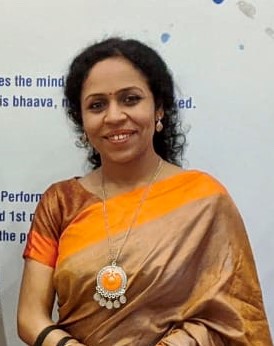ADD THESE DATES TO YOUR E-DIARY OR GOOGLE CALENDAR
This site is part of the Siconnects Division of Sciinov Group
This site is operated by a business or businesses owned by Sciinov Group and all copyright resides with them.
ADD THESE DATES TO YOUR E-DIARY OR GOOGLE CALENDAR

Kamala Nehru College, University of Delhi, India {09:00AM-09:45AM}
Title:From ‘surviving’ to human flourishing: Reclaiming Citizenship for women in Sex-work
The discourse on sex-work is a deeply contested one around the possibilities and extent of its legalisation, regularisation and prohibition thereby prevailing on a strained relationship with state. The main statute dealing with sex-work in India is Immoral Traffic Prevention Act (1986). According to the act commercial sex and soliciting in a public place is a punishable offence. The act intends to protect women from trafficking i.e. forced/coerced into prostitution.
The arguments for and against the recognition of sex-workers’ rights involve questions of expressions of sexual agency, reproductive health rights, protection from violence, sex- trafficking and concerns around sexual exploitation, right to bodily integrity and choice of work etc.
The paper critiques the mainstream political discourse on three grounds.
First the discourse is (mis)informed by extreme binary positions. There is a ‘helpless woman forced into sex-work’ vs ‘woman who voluntarily chooses the occupation’, purity vs impurity divide based on moral judgements about the nature of work, absolute abolition vs recognition as ‘work’ debate and sex-worker’s rights vs rescue-rehabilitation dilemma. Thus, there are only two kinds of female subjects ‘visible’ in the debate. There is the ‘vulnerable/helpless’ woman without agency who is waiting to be ‘rescued’ and there is an ‘empowered’ subject with agency who has made a ‘choice’. The false binary that has continued to dominate the discourse has oversimplified both positions as well as ‘invisibilised’ female body and her subjectivity as a lived experience.
This has led to further denial of recognizing the precarity of women’s agency in sex-work and further marginalisation of women as right-bearing citizens of the state. Their claims to citizenship remain limited to ‘bare survival’ rather than the capability to aspire, flourish and live life with dignity. This became glaringly evident during the COVID-19 with very limited access to basic resources, health services, food and livelihood options during the difficult time of nationwide lockdowns.
Secondly,
The paper has two objectives:
First, I shall use the capability framework to argue that the state position continues to view women in sex-work within these binaries which have confined them to rescue-reform-rehabilitation dilemma and perpetuate their marginalization. The paper argues that women’s agency especially in the context of sex-work, is not a fixed idea but a fluid concept navigating through power hierarchies of socio-economic and sexual subordination. It would focus on a recent policy scheme UJJAWALA for prevention of trafficking and Rescue and Rehabilitation and Re-integration of Victims of Trafficking and Commercial Sexual Exploitation in India.
Secondly, the political discourse ignores the intersectionality dimension based on a presupposed uniform category of women in sex-work. It fails to differentiate the layers of oppression where women from traditionally marginalised castes like dalit community who enter the sector as a consequence of socially embedded caste-based social reproduction of sexual labor.
Thirdly, the paper argues for a political discourse and policy framework that helps to reclaim the rights of women in sex-work as citizens of state. It seeks to argue for an expansive notion of citizenship that moves beyond keeping women in sex-work ‘alive’ towards providing opportunities for meaningful choices, viable exit options and informed agency.
Nupur Ray is an Associate Professor at the Department of Political Science, Kamala Nehru College, University of Delhi. Her areas of academic interest and teaching include Political Philosophy, Gender Studies, Human Rights and Human Development. She has published widely in reputed journals including Indian Journal of Public Health and Indian Journal of Gender Studies, recently. Her recent publication also includes a jointly edited book ‘Discourse on rights in India: Debates and Dilemmas’ (Routledge, 2019). She has contributed chapters to edited volumes and presented papers at various national and international conferences {Human Development and Capability Association (HDCA) Annual Conferences, International Studies Association -North East (2020), International Journal of Feminist Politics Virtual Conference (IFJP-2021)} around issues/themes of human development, violence against women, sexual and reproductive rights, feminist research methodology, women in sex-work etc. She is currently engaged in an Indian Council of Social Science Research (ICSSR) awarded research project on ‘Declining Child Sex Ratio and Violence Against Women: Examining Girl-Child Discrimination in India’. She is heading the Women’s Development Cell currently, a student-based group working towards gender sensitization and creating awareness around gender issues on college campus. She has also been actively involved in the different campaigns of women’s movements in India like the One Billion Rising against Violence. She has been invited as a resource person at various faculty development programmes, faculty seminars, students’ seminars and on panel discussions at various occasions.